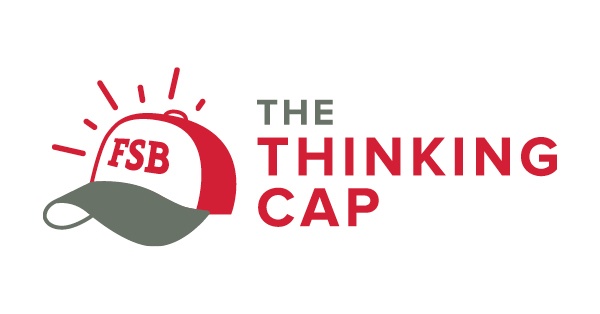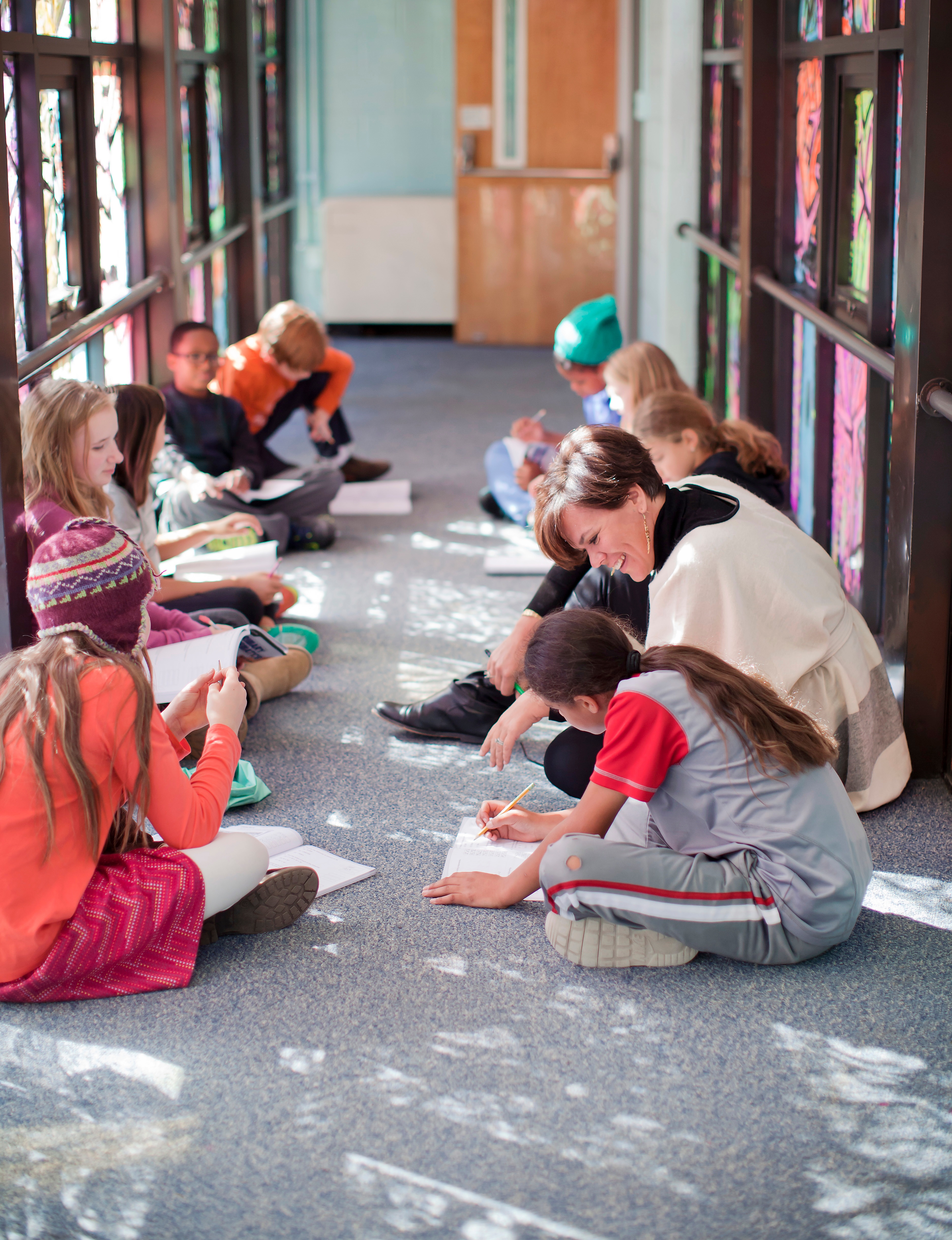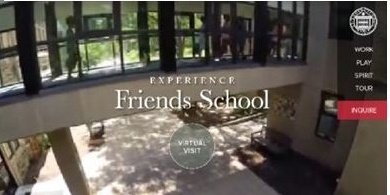Upper School principal Steve McManus likes to check in with the student body and help set a positive tone for the week ahead by sending a weekly Sunday evening “McMessage” – even when School is out of session. Often these are upbeat, lighthearted and infused with humor. But not always. Here’s what he shared a week ago following the events in Charlottesville, Virginia.
How a Friends school approaches Charlottesville
Genius Time inspires student led learning
When 4th graders Laya and Alexandra learned that a tent encampment beneath a West Baltimore overpass had been removed by the City, the children asked Lower School Assistant Principal Cynthia Barney what would become of the homeless men and women who had lived there. Barney couldn’t provide a simple answer (there isn’t one), but connected the girls to Adam Schneider, community relations specialist at Healthcare for the Homeless, who responded to that question and 12 others they sent him about homelessness in Baltimore. Such curiosity and enthusiasm are at the heart of Genius Time, a student led learning initiative that engages Lower Schoolers in researching a topic of their choice and then demonstrating their knowledge through a variety of community service projects. With the support of the Lower School, Laya and Alexandra held a “crazy jeans” day on behalf of Healthcare for the Homeless and collected over $400. In a follow-up letter Schneider wrote to Barney: "If we are to have any chance at addressing the problems we face as a community, society, and world, we will need thoughtful and committed young people like, Laya and Alexandra.”
Taking healthy risks on the playground
What these times demand of our schools
These are interesting times for schools. Increasingly, and appropriately, parents are looking to us as educators to provide their children with the skills they need in order to navigate the noisy, fractious, and divisive culture we inhabit. As with all skills, these can only be developed through disciplined and intentional practice in communities of learning, which makes finding the right school more important than it has ever been. And schools, in turn, must decide how we will respond to the challenges of our era: We can seek to shelter students from the contentions and controversies that have roiled our society, or we can harness the energy unleashed in these momentous times to deepen our children’s learning and prepare them to be the leaders we will need going forward. Friends schools have, for more than 300 years in America, reliably chosen the latter course, helping to guide students and families through a revolution and a civil war, through astonishing accelerations of scientific and technological innovation, and through a host of other triumphs and tragedies, all with a clear-eyed willingness to frankly acknowledge and engage our struggles and a relentless determination to make the world a better place.








